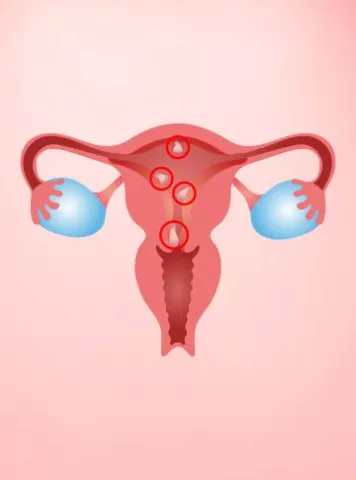Hyperthyroidism Symptoms Causes and Treatment
Thyroid dysfunction is quite common today. Almost one in 20 people experience some form of thyroid dysfunction in their lifetime. Hyperthyroidism is a medical condition caused by the excess of thyroid hormone in the blood. Thyroid hormones control metabolic process in the human body and in case of overactive thyroid these processes are often sped up causing Hyperthyroidism symptoms. It can’t be treated but it can be successfully managed by treatment such as anti-thyroid medication. One should never overlook the Hyperthyroidism treatment as untreated Hyperthyroidism causes major heart, bones and other health issues.
Before knowing more about the Hyperthyroidism problem, let’s first discuss a bit about the thyroid gland and thyroid hormones.
What is Thyroid Gland and Thyroid Hormone?
Dr. Priya Singh Gynecologist & IVF Specialist Explained that: “The thyroid gland is the butterfly-shaped gland located in front of your neck, below Adam’s apple. The thyroid gland produces hormone thyroxine which controls our body metabolism, in other words how the body will turn food into energy. This hormone affects many organs and biochemical systems in the human body.”
What are Hyperthyroidism Symptoms?
Hyperthyroidism can affect anyone at any age, but a study shows it affects women more than men. Talking about the Hyperthyroidism Symptoms, most people have one or more of the following symptoms:
- Unplanned and unexplained weight loss
- Rapid heartbeat, abnormal heartbeat, or pounding of the heart
- Nervousness, anxiety, or touchiness
- Tremors (trembling of the hands and fingers)
- Changes in menstrual patterns in women, such as lighter flow or less frequent periods
- Increased sensitivity to heat
- Increased sweating
- Changes in bowel habits
- An enlarged thyroid gland (called a goiter), which can appear as swelling at the base of the neck
- Fatigue
- Muscle weakness
- Troubled sleep
- Increased appetite<meta name=”keywords” content=”Hyperthyroidism Symptoms , Hyperthyroidism Causes , Hyperthyroidism Treatment ,Thyroid Nodules ” />
What are the causes of Hyperthyroidism?
Graves Diseases: This is an autoimmune disorder and the most common cause of Hyperthyroidism. Our immune system is a collection of some special cells and chemicals that fight against foreign agents such as bacteria and viruses in the body. In Graves disease these antibodies start stimulating the thyroid uncontrollably. The grave disease often runs in families and common in middle age, although it can affect children and adolescents. It is eight times more common in women than in women.
Risk factors of Graves ’ disease include smoking, radiation to neck, medication and viral illness. It can be easily diagnosed by a blood test or a nuclear medicine thyroid scan. This problem is associated with an eye’s diseases called Graves’ ophthalmopathy and skin lesions called dermopathy, common symptoms of graves diseases include:
- Eye disease causing that causes inflammation and protruding eyes
- Eye swelling
- Reddening coarsening of the skin on the shins
Thyroid Nodules: Nodules are referred to small cysts, usually not cancerous. When or more of these nodules grow on the thyroid gland they became toxic. In other words. Lumps on the thyroid gland produce too much thyroid hormone. This situation leads to Hyperthyroidism.
Thyroiditis: This situation is also known as inflamed or swollen thyroid gland caused after some illness. People suffering from thyroiditis have generalized neck pain, sore throat, and fever chills. This condition also causes of Hyperthyroidism. Women in the years following pregnancy are at higher risk of thyroiditis. It can be easily diagnosed with a blood test or thyroid scan.
Goiter: It is the condition of the enlarged thyroid gland. This condition can either cause Hypothyroidism or Hyperthyroidism.
High-Iodine Intake: Too much consumption of food and medication including Iodine can is also one of the hyperthyroidism causes.
People at high risk of Hyperthyroidism
It is also mentioned above that Hyperthyroidism affects women more than men but anyone can develop Hyperthyroidism problem. However, some people are mentioned below are more at risk:
- Who has a family history in of thyroid diseases
- Who are older than 60 years
- Who already have certain problems such as type 1 diabetes, pernicious anemia or immune system disorder
- Who consumes a large amount of iodine either through medicine or food
How Hyperthyroidism Diagnosed?
If you have symptoms of an overactive thyroid you are suggested to contact the doctor. Your doctor will ask you a few questions related to the Hyperthyroidism and do some physical exams.
- Your doctor will check for an enlarged gland, rapid pulse, eye changes, moist skin, and tremor in fingers and hands.
- A blood test will also be performed to check the amount of thyroid hormone in the blood.
- The doctor may do a thyroid scan to find the cause.
What are the options available for Hyperthyroidism treatment?
It is true that there is no permanent cure of but there are many treatments available to manage the Hyperthyroidism condition successfully. This treatment depends upon the age and health of the patient and the cause and condition (mild or severe). The main goal of treatment is to relieve the symptoms and prevent future health complications, so the treatment will control the thyroid levels to make them normal.
The treatment includes:
1. Anti-thyroid Medicine: This is the first and the early treatment of hyperthyroidism. The purpose of anti-thyroid medicines is to prevent the thyroid gland from making too much thyroid hormone. This treatment will last for a year as it takes a few months to start improving the hyperthyroidism symptoms. This a good option for women who are pregnant or breastfeeding and are diagnosed with hyperthyroidism symptoms. But one needs to talk to the doctor about the side-effects of the medicines as well before starting the treatment.
2. Radioactive Iodine: This is another method to stop excessive thyroid hormone production. In the process of treatment radioactive iodine is taken by mouth. It shrinks the enlarged thyroid gland and kills off the overactive cells. This will take 6 to 6 months to decrease the symptoms and the final result is permanent low thyroid activity or hypothyroidism. This condition can be further treated with thyroid supplements. This is not a suitable treatment for women who are pregnant or breastfeeding.
Surgery: Thyroidectomy is the surgery that is used to remove complete or some portion of the thyroid gland. The surgery will result in hypothyroidism for which you’ll need to take a thyroid replacement for life.
We will recommend you to talk to your doctor if you think you have hyperthyroidism symptoms. After a blood test and thyroid scan your doctor will diagnose the condition and hyperthyroidism causes. Most of the time you are referred to an Endocrinologist, a physician who is specialized in the function of the glands and the body. The Hyperthyroidism treatment is easy but untreated hypothyroidism can lead you to serious complications such as heart problem, brittle bones, thyrotoxic crisis or Infertility.
Articles
2023


World AIDS Vaccine Day 2023: Can HIV & AIDS affect fertility or your infant’s health?
World AIDS Vaccine Day is observed every year on the 18th of May to create awa...
2023


Male Infertility Infertility Tips
Hyperspermia: Causes, Symptoms, Diagnosis & Treatment
What is Hyperspermia? Hyperspermia is a condition where an individual produ...


Guide to infertility treatments Infertility Tips
पीआईडी: पेल्विक इनफ्लैमेटरी डिजीज और निःसंतानता
पीआईडी - पेल्विक इनफ्लैमेटरी �...
2022


Infertility Tips Uterine Fibroids
Endometrial Polyps (Uterine Polyps)
What are Endometrial Polyps (Uterine Polyps)? Endometrial polyps, often ref...
2022


Female Infertility Infertility Tips
Why do You Need Fertility Treatment
As we all know infertility rate is constantly rising in our society day by day...
2022


Cesarean Section Vs Natural Birth
Surrogacy centers in Delhi and Infertility centers in Pune state that there ar...
2022


ನಿಮಗೆ ಹುಟ್ಟಲಿರುವ ಮಗುವನ್ನು ಅರ್ಥಮಾಡಿಕೊಳ್ಳುವುದು: ಗರ್ಭದಲ್ಲಿ ಮಗು ಹೇಗೆ ಬೆಳೆಯುತ್ತದೆ!
ವೀರ್ಯವು ಮೊಟ್ಟೆಯನ್ನು ಭೇಟಿಮಾಡ�...
2022


Diet Chart for Pregnant Women: The Right Food for Moms-To-Be
Pregnancy Food Chart 1. The daily diet must include the right amount of pro...
2022


Can i become pregnant while my tubes are tied?
Pregnancy is one of the most important phases in women’s life and is conside...
Pregnancy Calculator Tools for Confident and Stress-Free Pregnancy Planning
Get quick understanding of your fertility cycle and accordingly make a schedule to track it















